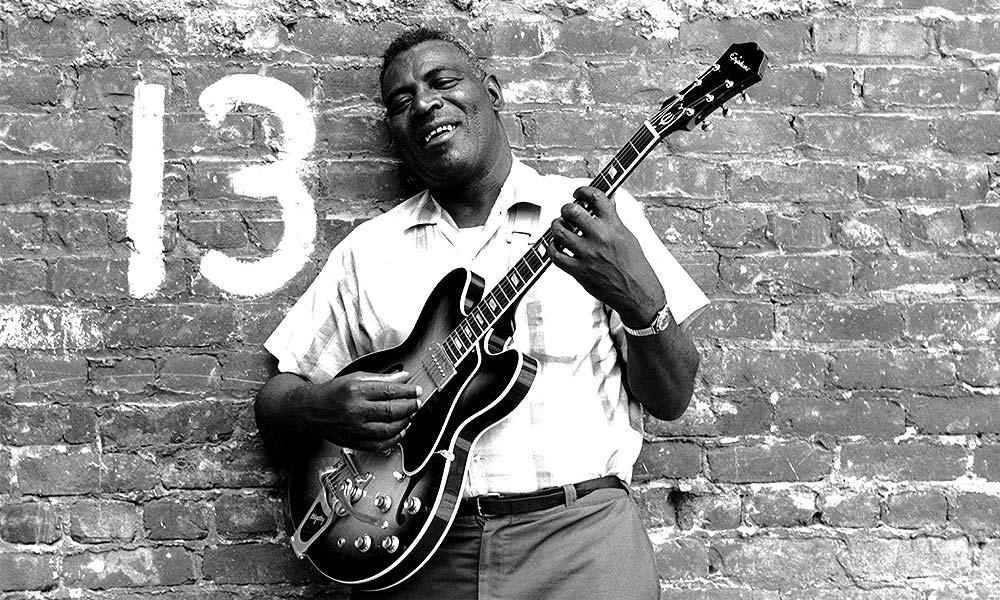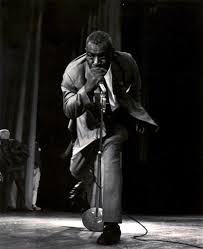
It was a huge thrill to have my poem “Billie Holiday’s Deathbed” published (and nominated for a Pushcart Prize) by Decolonial Passage and I’m equally happy to see my new poem “Howlin’ Wolf’s Harp” live on their site today. Video of the EPIC recorded performance that inspired this poem below. (And if this is your introduction to The Wolf, welcome to rest of your very happy life; my previous Howlin’ Wolf poem, which appears in The Blackened Blues, below, too). Spread the word and support your independent lit mags!!!
Howlin’ Wolf’s Harp
He licked it, not like a lollipop, but with intent,
the burden of royal tasters, back in bad old days:
tongue artists whose job was to absorb poison
and ensure it was palatable for noble appetites—
Wolf’s music his way of explaining: I asked you
for water and all you’re giving me is gasoline.
He would lick that mouth organ as if eating
the blues, taking a bite out of this hard life,
as a black man living always under suspicion
of the same things he sang about: killing floors
& moaning at midnight, white eyes expecting
you to play the fool—or prove your innocence.
He licked the harmonica only because he had to
spend the rest of his time swallowing the gristle
of separate but equal, and all the things awful
about the South—and North; no safe haven then
(& now); either sitting on top of the world or else
you’re going down slow, one spoonful at a time.
Howlin’ Wolf’s Arena
On occasion he would crawl across the stage,
not like a dog but a soldier trapped in a trench.
Avoiding sharp rim shots and blasts of brass or
the iced-over stares of bewildered civilians.
This, for him, was the front-line, something to abide
every night under those lights, and like any war,
it was more or less safe as the stretches of peace:
Wherein difference or friendly fire could kill you,
while the maître d’, forever smiling, counted
the bodies, cleaned up, and served last call.
Who’s afraid of the big, bad Wolf?
Plenty of people, and for good reason.
Fortunately for us, we are not sketchy record company executives or anyone else who may have unwittingly crossed his path during the Wolf’s prime. Chester Arthur Burnett was big and he was a bad man (the same way James Brown and Charles Mingus were bad men: they knew they were geniuses and they suffered fools poorly, as geniuses are obliged –and allowed– to do). Unfortunately for us, he is gone and has been for over a quarter of a century. Indeed, he moved on to that great pack in the sky early in 1976 — a very appropriate year for this most American of blues legends. June 10, 2010 marked his centennial, and he remains an artist who cannot be imitated and whose unmistakable growl can probably never be adequately explained or understood.
Six foot, six inches. Approximately 300 pounds. Named after President Chester A. Arthur. In a class entirely by himself as a singer, performer and presence. If Muddy Waters, his friendly (and at times not-so-friendly) adversary was like an industrious bee that produces so much sweet honey, Howlin’ Wolf was a bear that crashes into the nest, snarling as he swats away the thousand wasps circling his head.
I never had the opportunity to watch Wolf live but it does not take too much to imagine what he looked and sounded like, particularly during the ’50s. Considering there are few, if any, more menacing and addictive singers on record; it’s at once easy and impossible to get a handle on how unsettling (and ecstatic) it would have been to sit in a small auditorium and not believe your own eyes and ears.
Along with his ace guitarist, Hubert Sumlin, Wolf made some of the most covered (if essentially uncoverable) blues classics of that era. Many lesser men took a crack at numbers like “Sitting On Top of the World”, “I Ain’t Superstitious”, “Spoonful”, “Back Door Man” and “Little Red Rooster” (think Rod Stewart, Mick Jagger, Eric Clapton and Jim Morrison, to name a handful of the more opportunistic pups). Despite how embarrassing many of these efforts sound in comparison to the original versions, most of these bright-eyed white boys were paying genuine tribute to the man they admired. And Wolf, benefitting from the publicity these bands provided as well as his own shrewd business acumen, was one of the very few blues immortals who actually earned money during his lifetime.
You read advice like this all the time (and no matter how enthusiastically I endorse a particular artist, I try to dispense it judiciously) but if you’ve ever taken someone’s word for it when they say “your life is lacking if you don’t have this” take my word for it and drop the ten bucks on this indispensable document. It’s not just that you are depriving yourself of one of the singular voices of the last century, you are actually missing an important chunk of America itself. Put another way, touchstones like “Smokestack Lightnin’” and “Sitting On Top Of The World” endure less as (merely) American songs and more as components of this country’s unique sensibility. Believe your ears because they are, in fact, even more than that.

